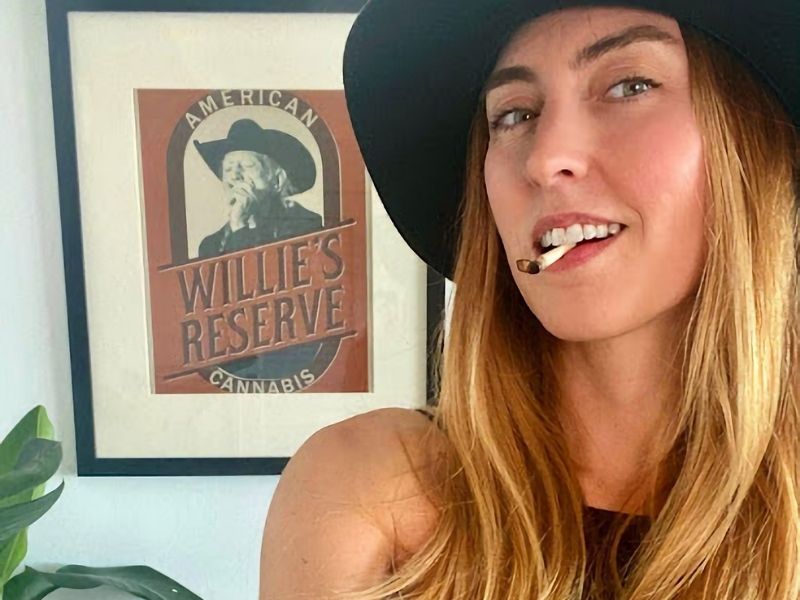
09/02/2022 Possibilities of Cannabis Legalization
The Cannabis Reader had the pleasure of interviewing Jocelyn Sheltraw, Head of Industry Relations at Headset, a data analytics firm from Seattle, WA. Jocelyn gives her take on legalization and the future of cannabis in the United States.
We asked some forward-looking questions about cannabis legalization and growth. Here are the answers Jocelyn was kind enough to provide with the most current data to back up her responses.

Jocelyn Sheltraw, Cannabis & Consciousness at Headset
TCR: Do you believe full US legalization will occur within the next 5 years?
Jocelyn: "I believe federal legalization is likely in the next 5 years, however, I think all of us in the industry need to think critically if we’re ready for that, or are we moving too quickly and not giving ourselves enough time to fully understand what policy, regulation, community education, product innovation, and the entrance of large scale companies should look like.
Federal legalization doesn’t necessarily mean you’ll be able to buy, import, or export cannabis across all states. It will be interesting to see how interstate commerce laws and regulations develop in conjunction with federal legalization. Look for examples of how this operates from interstate commerce laws for wine distribution in America (it’s legal though strictly regulated on how and where consumers can access certain brands).
Regardless, whenever legalization does happen, and as new consumers enter the market looking to use cannabis medically, recreationally, spiritually, etc we will see the evolution of all types of products and uses. When it comes to recreational use, inhalable like Flower, Preroll, and Vape Pens will remain a large category of sales (right now those 3 categories combined in California make up 76% of states total sales), and I think we will start to see new categories like Beverages play a much larger role (currently Beverages make up around 1% of the total sales in California). As we begin to see more consumption lounges open, people being more cognizant of their alcohol consumption, open usage at events like Coachella, Lollapalooza, and so forth, this will bring in new consumers and normalize using cannabis as a drink for socializing. A lot of people use cannabis socially and so it will be interesting to see how people start to use it as opposed to, or in addition to, alcohol.
Outside of recreational use, I’m looking forward to seeing how federal legalization advances medical use, as well as how we begin to use hemp for more material goods."

TCR: What issues do you believe might need to be addressed yet for us to reach an equitable resolution toward legalization?
Jocelyn: "People in the cannabis industry have very different views about how the industry and operators should be regulated. This is natural given the long and complex history of cannabis and its various uses. Because of this, there are a multitude of things to be addressed around policy, economic benefit, social justice, and all of these will be best resolved through listening to varied perspectives without judgment, and of course through time.
I say this because I’m a part of the dozen-plus different cannabis associations and groups around the country, and has been a part of another new and emerging industry (I was a part of year one of mobile apps being created), people right now are building and operating on a lot of unknowns. An emerging industry, coupled with the current dynamics like the pandemic, social strife, advancements of technology to which the world around us is rapidly changing, has created a very unstable environment for building a new business, which puts people in situations that challenge their ego, and therefore make it hard to have space so that more thoughtful decisions can be made.
It seems to me if people want to be champions of change or push for federal legalization, perhaps it's easier than we make it. Think critically about what the industry should look like from your own perspective. Ask your fellow brothers and sisters what they believe cannabis should be and represent for our society. Think critically, seek understanding, and have an open mind and we will naturally have an equitable resolution because people will see there isn’t one answer or way."

TCR: How large do you believe the total US cannabis market will be within 5 years?
Jocelyn: "I can’t speak to how large the US market will be in 5 years as that’s hard to predict with so much change, however, at Headset we just did a forecasting analysis and by 2025 we’re projecting legal US sales to reach nearly $46B. This is a big business.
And that’s just the legal market cannabis across the country has a large illicit market. For example, I’ve read projections stating that in 2020 illicit market sales were $8B in California, which is double that of legal sales."
TCR: Within the current trajectory of the US cannabis markets, where do you see the US cannabis market in 10 years?
Jocelyn: "At a high level, I believe in 10 years cannabis will be widely integrated through our society. We will see cannabis products offered by big-box retailers, cannabis retreats and tourism, cannabis being sold and consumed at concerts and events, medical communities prescribing cannabis treatments, cannabis and hemp being used in more material goods, etc. There are so many uses for the plant which span the gamut.
To grasp where the industry will be in 10 years I like to think about the current rates of normalization and how quickly people’s perspectives are changing. There is a compound effect as the industry matures."

Cannabis Industry Rollup
Jocelyn has provided valid predictions on the growth trajectory of the cannabis industry. The Cannabis Reader thanks Jocelyn Sheltraw and Headset for enlightening us about the expectations of cannabis growth in the United States. All percentages quoted are from the newest data available from Headset.
We also sat down with Kerry Jordan and Sparky Rose of Supercritical, LLC to ask these same insightful questions. We wanted to provide a few different outlooks for these highly focused topics. Don't miss part two coming soon.
TAGS:






